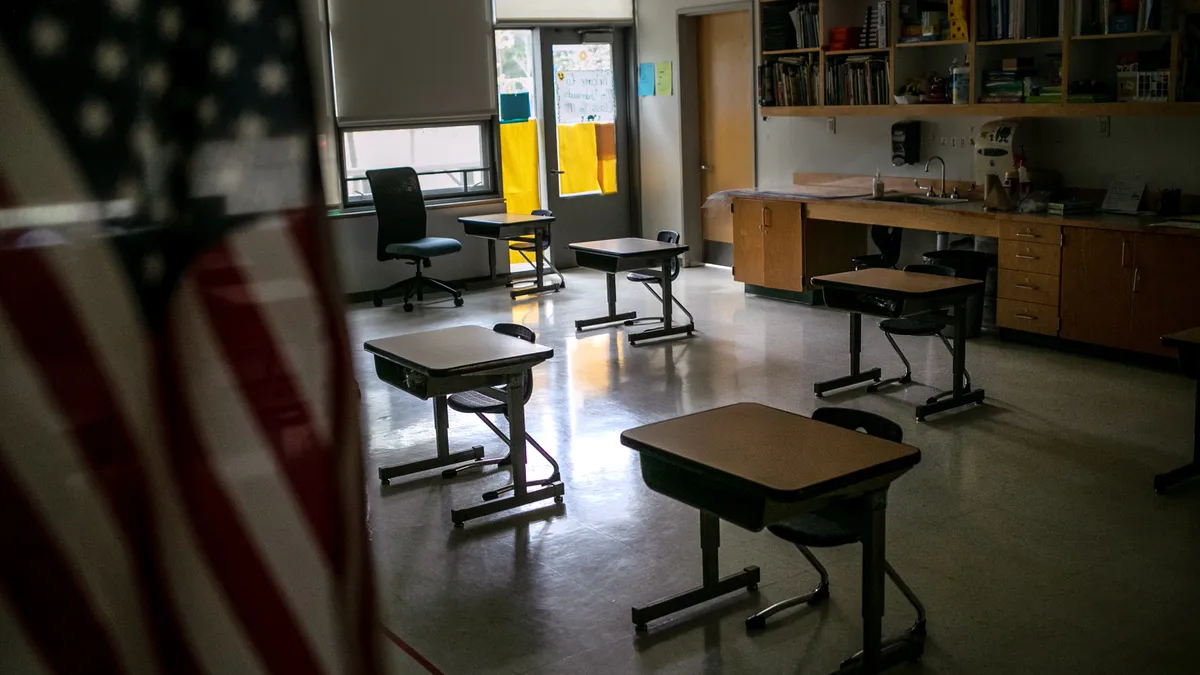Dive Brief:
- State and local government officials are introducing legislation targeting critical race theory at an equal or faster pace in 2023 to that of 2021 or 2022, according to a report by CRT Forward, an initiative of the University of California Los Angeles School of Law Critical Race Studies Program. In 2021 and 2022, 563 measures were introduced to restrict teaching on race and racism, of which 241 became adopted policies.
- A majority of both proposed and enacted anti-CRT measures in 2021 and 2022 focused on schools, with 91% of the 563 bills introduced and 94% of the 241 laws enacted targeting K-12, UCLA researchers found.
- Among the 513 proposed measures that zeroed in on K-12, 73% regulated classroom teaching and 75% regulate curricular materials, according to the report. Researchers added that many of the bills targeted both instruction and curriculum materials.
Dive Insight:
The UCLA report suggests efforts to expand legislation seeking to censor classroom discussions and materials in K-12 schools are not going away in the immediate future.
UCLA researchers define critical race theory as “an interdisciplinary practice and approach to understanding the foundations and maintenance of race and racial subordination in the legal system throughout history.”
Under the brief existence of former President Donald Trump’s Executive Order 13950, which was overturned just a few months following its September 2020 release, there was a ban on “divisive concepts,” which the UCLA report described as an idea “that conservative operatives organized under the banner of ‘CRT.’”
The language from the order continues to live on in other local and state legislation, the report said, adding that nearly half of the measures introduced by lawmakers have borrowed wording, such as references to “divisive concepts,” from the now-repealed executive order.
“Since then, conservative law and policymakers nationwide have sought to legislate or otherwise act legally to target their misrepresented version of ‘CRT’ and its alleged offshoots,” researchers wrote.
The report also found lawmakers in red states introduced more anti-CRT measures compared to those in blue and purple states. However, at the local level, government officials proposed policies in equal numbers, regardless of their state’s political leaning.
Educators say these anti-CRT laws create roadblocks to discussions around race and gender and make it difficult for marginalized students and their peers to understand their histories and identities. These censorship pushes have also created challenges for educators looking to build inclusive curricula. The scope of restricted topics in schools is expanding, too, as anti-LGBTQ policies have increasingly made their way into classrooms within the past year.
Some Republican lawmakers, however, have said promoting critical race theory in schools would cause further divisions nationwide and indoctrinate children. But the concept is not taught in K-12 classrooms, said a separate 2022 report by researchers from the University of California, Los Angeles and the University of California, San Diego. Critical race theory is primarily used in education research, according to the report.















